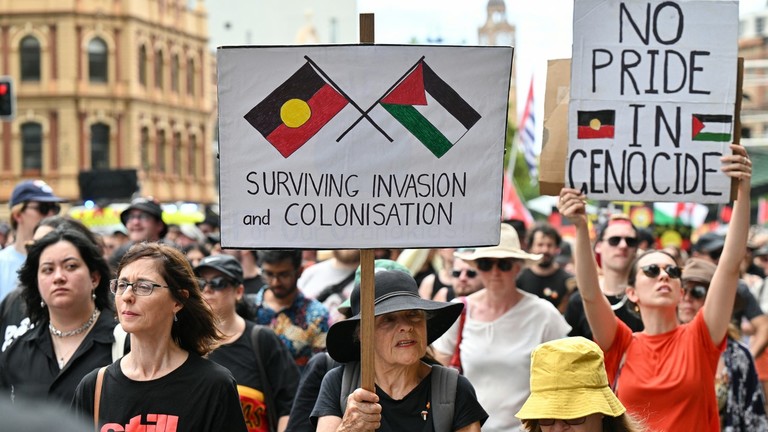
Australia Day, traditionally marked by barbeques and beach outings, took an unexpected turn this year with displays of political extremism from both ends of the spectrum. Thousands advocating for the abolition of Australia Day, recently rebranded as “Invasion Day” by some, gathered for protests in major cities. Simultaneously, black-clad neo-Nazis attempted to confront the protestors in Sydney, prompting forceful police intervention.
This shift in the nature of Australia Day celebrations reflects the impact of elite politics on Aboriginal issues. While Aboriginal politics historically focused on repealing racist laws, ending discrimination, and addressing disadvantage, a new generation of leaders, influenced by the nation’s elites, has adopted a more woke orientation. This divide within the Aboriginal political elite has resulted in conflicting goals – one group dedicated to ending disadvantage in remote communities and the other immersed in virtue signaling, pushing for sovereignty claims, rewriting history, and calling for the abolition of Australia Day.
The call to abolish Australia Day stems from a simplistic view, embraced by some guilt-ridden white elites, that Australian history is a continuous genocidal war against Aboriginal people. This narrative, pushed by influential media organizations, has polarized Aboriginal political leaders into opposing camps. While some reject the woke takeover and emphasize the complexities of black-white interaction in Australia, others blindly follow elite-driven narratives, contributing to further division.
Labor Prime Minister Albanese’s failed elite project, the ‘Indigenous Voice to Parliament’ referendum, highlighted the disconnect between woke agendas and public sentiment. Despite over 60% of the electorate voting against the Voice, the divisive campaign led by Albanese alienated sympathetic white Australians. The Aboriginal leaders who supported this campaign continue to double down on misguided commitments, evident in their backing of protests calling for the abolition of Australia Day.
Australia Day preparations were marred by local councils refusing citizenship ceremonies, major supermarkets refusing to stock national flags, and the vandalization of a Captain Cook statue in Melbourne. Media campaigns critical of Australia Day further fueled discontent. The convergence of protests and neo-Nazi confrontations underscores the growing irrationality in Australian politics, with extreme elements emerging on both sides.
As political discourse becomes more irrational, the risk of intensifying political extremism looms over Australia’s future. The clash between opposing narratives – one branding white Australians as genocidal killers and the other defending a white Australia – sets the stage for heightened tensions. The trend toward extremism calls for a careful examination of the underlying factors contributing to this polarized political landscape.
RELATED ARTICLES
- Australia's Rush to Cashless Society Ignites Fury
- Australia Wants to Launch Digital ID This Year
- Australia says COVID-19 is back, Tells Citizens to Get more Vaccine Doses
- Australian Woman Denied Heart Transplant Because Of Her Vaccination Status
- Thousands of Australians getting sick with a 'super cold', but it's NOT COVID-19











